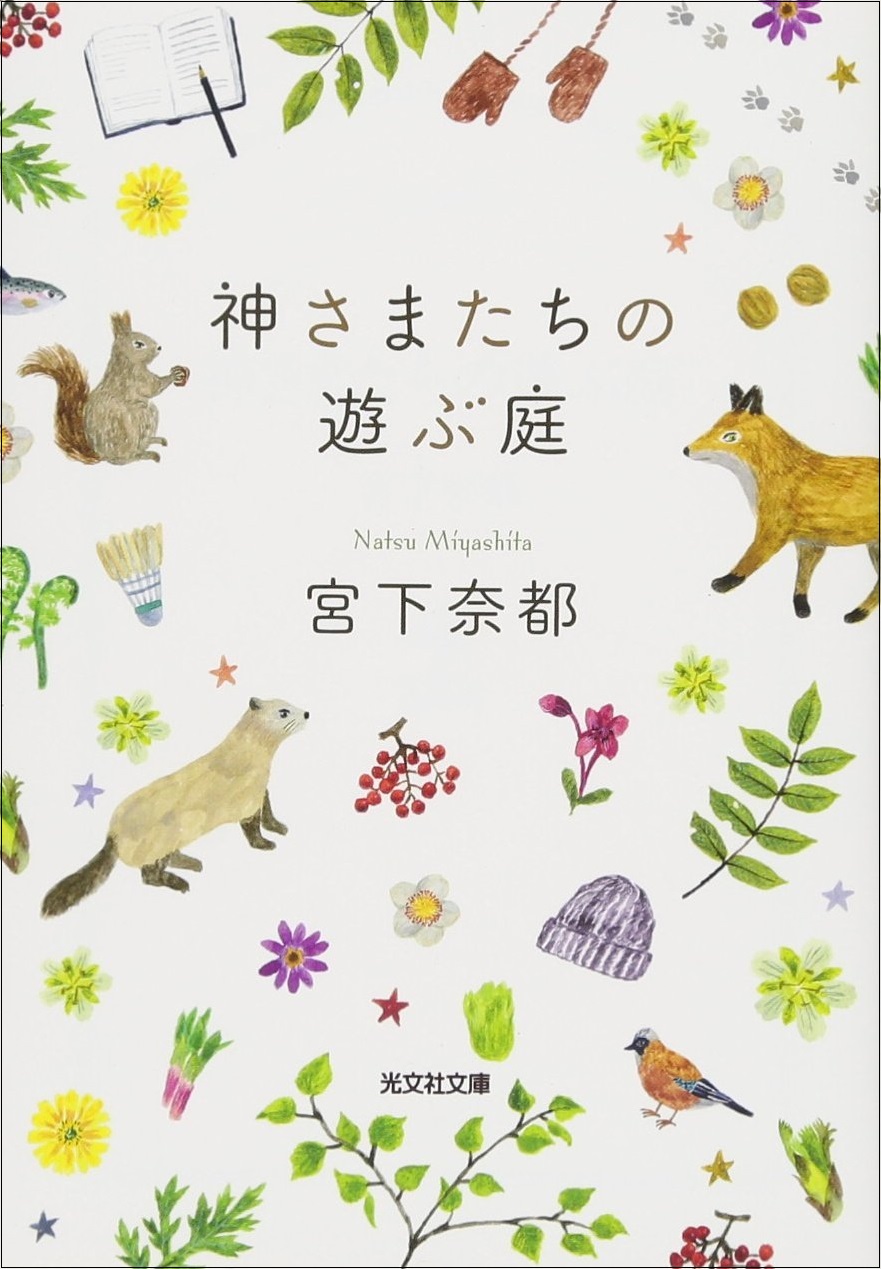The Playground of the Gods
Kamisama-tachi no asobu niwa / 神さまたちの遊ぶ庭
| Author | Natsu Miyashita | |||||||||
|---|---|---|---|---|---|---|---|---|---|---|
| ISBN | 9784334978075 | |||||||||
| Page Count | 284 pages | |||||||||
| Size | 15.4 x 10.5 cm (HxW) | |||||||||
| First Edition | January 2015 | |||||||||
| Category | Essay | |||||||||
| Publisher | Kobunsha | |||||||||
| Foreign Sales |
|
- Special Notes
- The author wrote the novel A Forest of Wool and Steel (Hitsuji to hagane no mori), which won the 2016 Booksellers Award.
The Playground of the Gods
Kamisama-tachi no asobu niwa / 神さまたちの遊ぶ庭
Description
This book is an account of the year author Natsu Miyashita and her family spent living in the remote mountain village of Tomuraushi in Hokkaido. It was this year-long sojourn surrounded by incomparable natural beauty that led Miyashita to write the novel Hitsuji to hagane no mori (A Forest of Wool and Steel), about a young man from remote Hokkaido who decides to become a piano tuner, which received top honors in the 2016 Booksellers Award balloting.
In January 2013, the family is living in Fukui Prefecture on the main island of Honshu when Miyashita’s husband, who loves Hokkaido and has long dreamed of living there, says he wants to move to Tomuraushi in the mountainous central part of the island, inside Daisetsuzan (Mt. Daisetsu) National Park. The name of the village means “place of many flowers” in the language of the Ainu, the aboriginal people of Hokkaido, who also speak of the place as kamui mintara, meaning “playground of the gods,” because of its spectacular beauty. Miyashita drags her feet at the suggestion, but when they decide to see what the children think, their two sons, 14 and 12, and their daughter, 9, are all in favor, so she is outvoted. The children will go to the local school, which has only 15 students between grades one and nine. Since the elder boy will be in ninth grade, and there is no high school within commuting distance, they agree they will stay for only one year.
They arrive at their new home in April, at the beginning of the school year. It’s 23 miles to the nearest supermarket, and 37 miles to the nearest big-box store where music, videos, and books can be purchased or rented. At the combined elementary and middle school there are no tests or homework, and the students wear sweats instead of uniforms. The days are filled with extracurricular learning such as outdoor classes, swimming, fishing, and even golf. School events bring out the entire community, which collectively watches over the growing children.
Miyashita is delighted by the natural surroundings of Tomuraushi and how sweet the air tastes. The northern spring arrives, the ice covering the nearby lake melts, and the trees turn green. In due course the seasons advance to autumn and the walnut trees turn yellow. The family had agreed they would stay just one year, but the magnificence of nature all around her makes Miyashita wonder how they can leave such a beautiful place to live anywhere else. The very thought makes her tear up. Then a girl who went through middle school in Tomuraushi before going away to attend high school in the city returns home, unable to adjust to her new school. The exact cause remains unclear. Children who grow up in the village all automatically know each other, so they never learn how to make new friends, and that can apparently be a problem when they go to the big city for high school. Miyashita debates whether the family needs to leave Tomuraushi after all, so the three children will have opportunities to make friends with others of their own age and sex.
In the course of several family discussions, they decide to return to Fukui rather than extend their stay. After returning to their former home, Miyashita feels on the one hand as if the family’s year in Hokkaido, which had seemed so wonderful and rewarding, was a figment of her imagination, and on the other as if she is actually still in Tomuraushi. Her husband returns to Hokkaido on a short-term job almost as soon as they are back in Fukui, and Miyashita herself has little doubt that someday they will all go back to Tomuraushi as a family.
Miyashita details true-life events in journal-like form, but readers are likely to feel as if they are suspended in a fairy-tale world.




